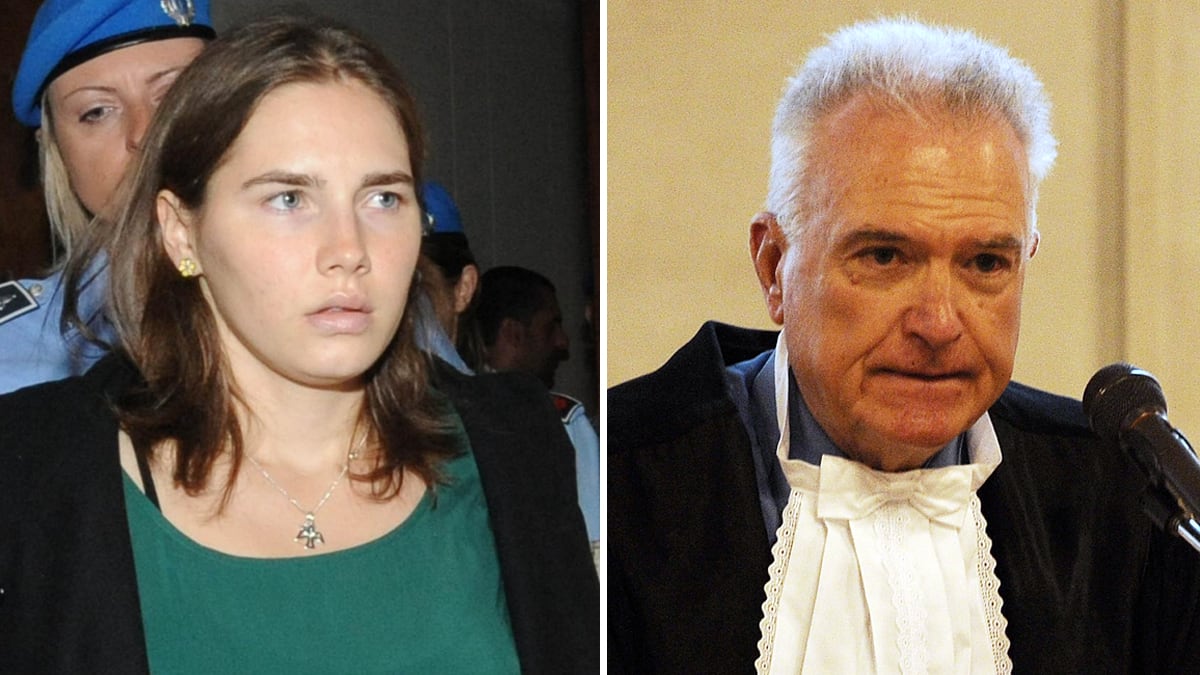Now we know why Amanda Knox was set free.
In a 143-page judicial ruling obtained by The Daily Beast, the appellate judge who issued the verdict on Oct. 3 acquitting the 24-year-old Seattle native in the murder of her British roommate Meredith Kercher four years earlier refers to a “total lack of material evidence” against Knox and her former lover Raffaele Sollecito. That’s quite a slapdown of the original conviction in December 2009. The court in the first trial ruled that Knox and Sollecito, together with Ivory Coast–born Rudy Guede, acted as a violent trio, first sexually assaulting and then murdering Kercher in November 2007 in the house she shared with Knox and two Italian women. Guede, who was tried and convicted in a separate fast-track trial in October 2008, was sentenced to 30 years in his first trial. His sentence was cut to 16 years during his appeal in December 2009. Guede lost his final appeal when Italy’s high court upheld the ruling that the three acted together.
Knox and Sollecito appealed their convictions and after a lengthy second trial that sometimes seemed like a tragicomedy, Judge Claudio Pratillo Hellmann and his jurors set Knox and Sollecito free, determining that Guede acted alone. In his ruling, Hellmann conceded that Knox and Sollecito’s alibis were unproven, and he upheld Knox’s conviction for slandering her former boss Patrick Lumumba when she accused him of Kercher’s murder. But he said Knox acted under “stress,” not malice, when she made her false accusation. She will still have to pay Lumumba’s legal fees and a fine, but Hellmann sympathized with her lawyers who pleaded that she was just a young woman in a foreign country and did not understand the gravity of the situation when she accused Lumumba. Hellmann also wrote that the diary Knox wrote in prison, which was confiscated by her guards, could not be used against her. Hellmann also blasted the Perugia police for “harsh treatment” of both Knox and Sollecito. “Her rights were violated when she was not given a lawyer during that initial interrogation,” Hellmann wrote. “The case was built on that shaky base.”

Hellman also pointed out what he called faulty forensics, and relied heavily on the results of an independent review of two key pieces of evidence used to convict Knox and Sollecito in the first place. A bra clasp with Sollecito’s DNA on the tiny metal hook was ruled inadmissible because it had sat uncollected on the floor of the crime scene for six weeks after the murder. A knife with Knox’s DNA on the handle and what investigators claimed was Kercher’s on the blade was also ruled inadmissible after the specimen on the blade proved too small to test a second time. “The genetic evidence was compromised by substandard police and forensic work,” Hellmann wrote. “Findings under such circumstances cannot be used to convict the accused.”
Knox’s lawyers are pleased with Hellmann’s ruling, but it is not the end of the road for Seattle’s most notorious resident. The prosecutor who first won and then lost the convictions has one more chance to appeal, and he told The Daily Beast that he will appeal the decision to Italy’s high court. Hellman’s ruling now sets up a perfect storm between Italy’s multilayered judiciary. Because Italy’s high court already ruled that Guede acted with Knox and Sollecito, they will now have to square the appellate court’s decision when they hear this case later this year.
In the meantime, Knox news is still a hot commodity. Photos of Knox cuddling her new live-in boyfriend, James Terrano, a music student at the University of Washington in Seattle, are regular tabloid fodder and Knox, a self-proclaimed aspiring writer, is reported to have signed on with high-dollar literary agent Robert Burnett, who also represented Barack Obama and Hillary Clinton when they were peddling their books. There is no word yet whether Knox’s book has been written or whether it will be a play-by-play of life in her Perugia prison, or if she will touch on the events of the night Kercher was killed, but it is almost certain she won’t publish anything until Italy’s high court has ruled.






